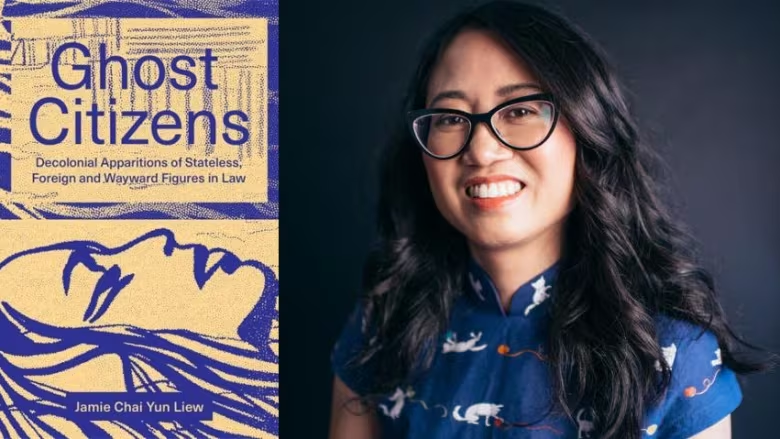
The plight of stateless people in U of C alumni Jamie Chai Yun Liew’s Ghost Citizens
By Ansharah Shakil, October 17 2024—
Ghost citizens is a term coined by Jamie Chai Yun Liew, a U of C alumni who studied political science and is now an author, immigration lawyer and a professor at the University of Ottawa. Liew previously released her debut fiction novel Dandelion in 2022, but in 2024 released the non-fiction book Ghost Citizens: Decolonial Apparitions of Stateless, Foreign and Wayward Figures in Law, which discusses the struggle of stateless people to surpass legal barriers of obtaining citizenship, using a case study of stateless people in Malaysia.
“Statelessness is a bigger problem than many people might realise,” Liew told the Gauntlet. “There are significant consequences to being stateless, and [it’s important] for people to be aware of that and to be conscious of the fact that we as citizens should be more aware and welcoming to people within our communities who are struggling.”
The phrase ghost citizens refers to stateless people: those who live in a country without any form of citizenship anywhere in the world, and so lack access to things such as education, healthcare, housing and identification.
“I was fortunate enough to be on sabbatical and be able to travel to Malaysia for four months to do some field work, and while I was there I interviewed close to 50 people and visited sights such as the registar where people make applications for citizenship and attended court hearings,” Liew said.
In addition to her work as a lawyer, professor and writer, Liew also has a podcast called Migrant Conversations.
“A lot of what I do is not separate … they all feed one another and when I’m writing sometimes I like to write more literary and in a creative sense … but some of that can only happen because I’m grappling with very serious research questions and legal issues which is fuelled by the work I do as a researcher and a lawyer,” she explained. “Podcasting is a great way for me to get to know other researchers, to read other important work and to be in conversation with the researchers, lawyers and the persons experiencing law.”
The book shares the stories of people who go unrecognized by their own countries, a result of racial categories formed in law during colonial rule, shedding light on the issue of their being unable to obtain citizenship.
“[For Ghost Citizens] I would sift through the data, mine the legal cases … but often some of the stories I heard from stateless people, their families and their advocates, were quite heartbreaking and so in order to grapple with the emotional … experience of statelessness I would journal and the journaling fed in the novel but also the narrative arc of Ghost Citizens,” she said.
Liew encouraged an interest in both law and writing, noting their similarities and believing it’s doable to do both at the same time.
“There’s an ethic in practice to writing, writing is a tool to communicate very important things,” she said. “If you’re an aspiring writer … do the writing [and] carry a notebook around. Writing doesn’t have to be always sitting at your desk and generating a Word document, it can also be a process in which you’re thinking through different questions that you’re passionate about … and to use those thoughts and journal about them.”
When asked how students could help the struggles of ghost citizens, Liew suggested volunteering for or advocating for migrant rights organizations, working with local settlement agencies and new immigrants or if you’re a law student, finding internships and placements with legal clinics that assist stateless people or migrants.
“[A good way to help is] doing the reading, being curious, being an active community member,” Liew said.
More about Liew and Ghost Citizens can be found here.
